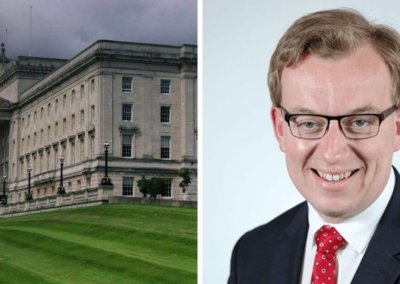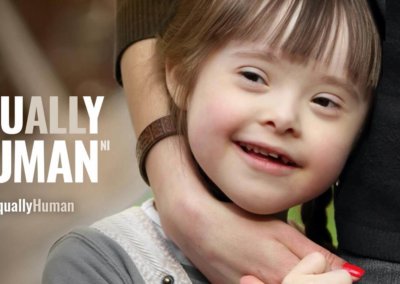A Bill to stop abortion up to birth for disabilities like Down’s syndrome, cleft lip and club foot has failed to pass after self-proclaimed “pro-life” politicians and parties fail to vote it through.
The Severe Fetal Impairment Abortion (Amendment) Bill, introduced into the Northern Ireland Assembly in February this year, proposed removing the current grounds in the abortion regulations that were imposed on Northern Ireland by the British Government in 2020, which allow abortion for babies with disabilities including Down’s syndrome, cleft lip and club foot.
However, after Assembly members voted by a narrow margin against the two clauses making up the Bill, it has effectively been defeated. It will now be referred back to the Assembly Speaker and it is not expected that the Bill will progress any further.
The two clauses in the Amendment that would have made abortion up to birth for disabilities like Down’s syndrome illegal were rejected in two separate votes, one for each clause. In both cases, the pro-life clause was defeated by 45 votes to 43.
Self-proclaimed “pro-life” politicians fail to vote for life
A number of politicians who either belonged to a “pro-life” party or called themselves “pro-life” either voted against the pro-life clause or abstained from the vote entirely.
Foremost among them is Ulster Unionist Party (UUP) MLA and Health Minister, Robin Swann, who is a self-proclaimed “pro-life” politician. As recently as 2018, he said: “I am pro-life and I am on record as such”.
The Social Democratic and Labour Party (SDLP) describes itself as “a pro-life party” but four of its MLAs (Cara Hunter, Pat Catney, Sinead McLaughlin, and Matthew O’Toole) voted against the pro-life clause preventing it from progressing to its next stage.
Additionally, their party leadership is strongly pro-abortion, with their two MPs, Colum Eastwood and Claire Hanna, being known for their party-contrary stances. In 2019, the party walked out of Stormont, thereby sabotaging a bill that would have prevented abortion from being imposed on Northern Ireland.
Sinn Féin MLA Michelle O’Neill stated in the debate on Clause 1 that “Sinn Féin’s policy is not in favour of access to abortion in cases where a non-fatal fetal abnormality has been diagnosed. That is also excluded by legislation in the South”.
Despite her clear statement that Sinn Féin does not support abortion in cases of Down’s syndrome, cleft lip, club foot, and other non-fatal disabilities, all sitting Sinn Féin MLAs voted against the Bill in a clear departure from their own party’s policy. While this was a departure from their position, it follows a directional trend towards being an absolutely pro-abortion party, which in the past has included campaigning to introduce abortion to the Republic of Ireland.
Members of the public in Northern Ireland can view how their local MLAs voted on the Where Do They Stand platform.
Right To Life UK spokesperson, Catherine Robinson, said: “If these self-proclaimed pro-life MLAs and parties had voted for the Bill, it would have not failed. This Bill is an extremely modest Bill seeking only to protect disabled babies from lethal discrimination up to birth. The abstention of the Minister for Health is particularly shameful, as he is on record proclaiming himself to be ‘pro-life’”.
“The SDLP has shown that it calling itself a pro-life party is a cynical ploy to earn votes. This is the latest dramatic example of its MLAs failing to live up to the party’s principle. A third of its MLAs voted to reject this pro-life amendment. It is hard to see how they can call themselves a pro-life party”.












